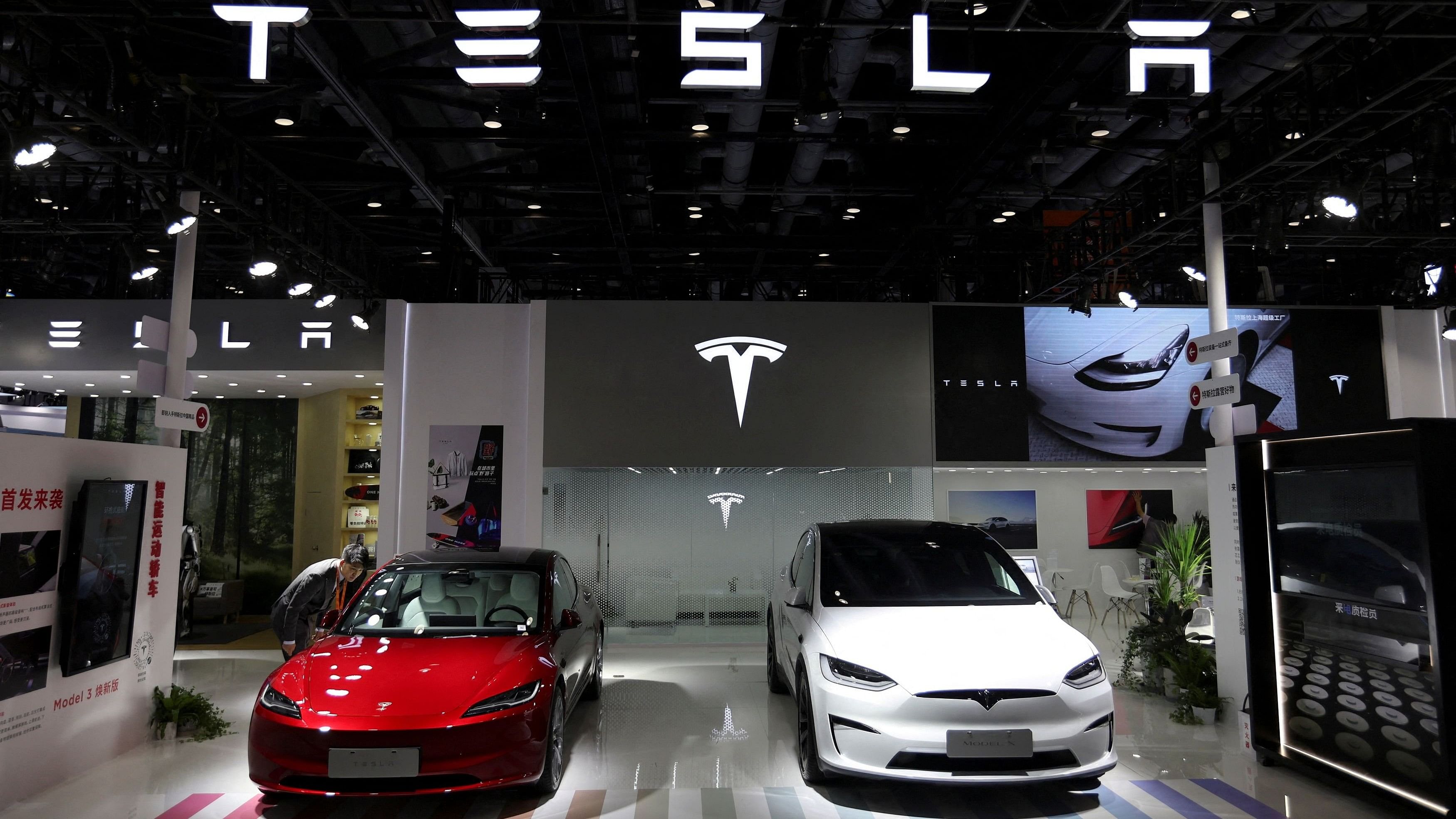
FILE PHOTO: Tesla's Model 3 sedan displayed next to Model X SUV at the China International Fair for Trade in Services (CIFTIS) in Beijing.
Reuters Photo
Bengaluru: Giving much awaited relief to foreign electric vehicle makers, the Centre on Friday announced a scheme to bolster domestic manufacturing by lowering the import cost of EVs to 15%.
Manufacturers will be required to invest a minimum of Rs 4,150 crore with no cap on maximum investment. They will also have to set up manufacturing units and start commercial production in the country within three years, while achieving 25% localisation in the first three years and 50% by the 5th.
"This will provide Indian consumers with access to latest technology, boost the Make in India initiative, strengthen the EV ecosystem by promoting healthy competition among EV players leading to high volume of production, economies of scale, lower cost of production and trade deficit,” the Ministry of Industry and Commerce said in a statement.
The erstwhile high import duty on high-end EVs had been a bone of contention for players like Tesla, which was in talks with the government to receive special concessions to set up shop here, including concessional duty imports of EVs. Till now, foreign EV makers had to shell out 100% in custom duty for vehicles imported as Completely Built Units (CBUs) valued above $40,000 (around 33 lakhs) including cost, insurance and freight (CIF) and 60% for those valued below.
The new policy has reduced the customs duty to 15% for vehicles with a minimum CIF value of $35,000 and above. The scheme will be applicable for a period of 5 years, on the condition that the manufacturer sets up domestic facilities within 3 years of entering the market.
However, a cap has been placed on the customs duty the government is ready to forgo, which is either Rs 6,484 crore or the investment made by the manufacturer, whichever is lower. Additionally, only 40,000 EVs at the rate of 8,000 per year will be allowed to be imported if the investment is of $800 million or more. Unutilised units can be carried over to the next year.
The companies looking to ship vehicles into India will also be required to provide a bank guarantee for their investment commitment valued at the unpaid custom duty, which the government can invoke if not fulfilled.
Opening the gates for foreign players to invest and manufacture in the country will lead to increased job creation, lower production costs, reduction in oil imports and a positive impact on the environment, Union Minister for Industry and Commerce Piyush Goyal tweeted on Friday. Industry players largely agreed.
“This policy will propel innovation, growth and job opportunities in the EV sector. It not only strengthens the supply chain but also firmly establishes India’s position as a global hub for EV manufacturing through incentives for investment and domestic manufacture,” said Mayank Bindal, founder & chief executive officer of EV ride hailing platform Snap E Cabs.
However, all may not be pleased by the development. Indian bigwigs like Tata Motors had opposed such concessions in the past citing the uneven playing field it would create for the growing domestic market.
“Established big players must adapt their strategies to capitalise on this transformation. Historically, the sector has faced challenges, particularly in areas like localisation, supply chain management, and technological integration. However, by revisiting these approaches and tweaking them effectively, there's a substantial opportunity for improvement. This will also help drive growth in the auto manufacturing sector,” said Vijay Ramakrishnan, marketing manager at EV two-wheeler manufacturer BNC Motors.
FILE PHOTO: Tesla Inc. vehicle facility is pictured in Costa Mesa California U.S. November 1 2023.
Reuters Photo
FILE PHOTO: Model Y cars are pictured during the opening ceremony of the new Tesla Gigafactory for electric cars in Gruenheide Germany March 22 2022.
Reuters Photo